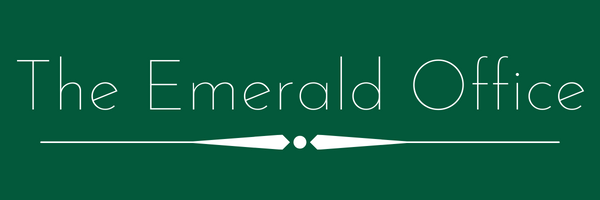By this point, I've pretty much hammered home the utility across your business and your sales cycle of introducing content creation as part of your comprehensive strategy. (Or go back to the beginning of this blog series to get the info.) Your sales cycle needs to be consistently bringing in new leads, which content can do by nature of being searchable and shareable. You need a way to nurture those clients, to communicate to them your expertise and perspective, to show the value behind your products, and to build a relationship with them. Content can do that in your sleep.
Top Three Types of Content Marketing
Blogging: Calling all writers this one is for you. A consistently written blog is the original content marketing option. Pros: Even if you don't consider yourself a writer, you'll probably find this medium familiar and forgiving. Blogs are the easiest and cheapest type of content. Cons: They tend to not be quite as easy to get traction on in the beginning since there are so damn many blogs out there.
Videos: Specifically on youtube and similar platforms, video is the most dynamic and engaging option out there. Youtube makes video content incredibly discoverable. Live video even more so. A big pro is that algorithms, social media, and people LOVE video right now. Con is that the equipment setup and performance aspect can be daunting for some people. Keep in mind that it really isn't that hard to make a decent video, but the learning curve does scare some people.
Podcast: Creating your own podcast is the happy medium that a lot of people are looking for, more engaging than a blog post, less production than a video, podcasts deliver on every front. The major advantage of podcasting is that despite the feeling that there are tons of podcasts out there, the playing field is WAY less crowded than blogging or youtube. Pros: Fairly easy to set up and maintain, tons of opportunity currently, and a really great conversion rate. Cons: a lot of people are lost as to where to start when it comes to creating one (stay tuned I've got an answer to this)
Podcasting by the Numbers
Right now, for MANY people, Podcasting is King. I'm not just saying that cause season two of my podcast went live this week, I'm saying it because the research backs me up. Compared to the 31 million youtube channels and an estimated 600 million blogs (though only about 32 million of those are active), there are only 850,000 podcasts out there. And keep in mind that not only are roughly half of American consumers listening to podcasts but on average most people who start an episode listen the entire way through (80% of episodes are finished). Podcast audiences are incredibly loyal and far more likely to act on recommendations given by the host and to check out sponsored content (this article has tons more info on that).
Why Are Podcasts so Powerful?
Because you literally have the ear of your target market. Marketing is all about the many places your potential clients can meet you and hear your message. That message draws your clients in and helps them to build a relationship with you. Nowhere on the internet is that connection so intimate as in podcasting. With the single-sensory experience of listening to a podcast, there is a distinct feeling that you are whispering right into the ear of your listener. They literally hear your voice as you share your perspective, personality, and passion with them.
Podcasts have the additional advantage of being incredibly easy to consume. They lend themselves naturally to car rides, workouts, and light multitasking. Podcasts become part of the routine of people's lives. We become the friend that accompanies you on your morning walk, that makes you laugh while you unload the dishwasher, that makes being stuck in traffic into productive learning time. No matter how busy, your market has time for podcasts.
As a creator, the podcast is great because it is low stress. No makeup required. If I mess up, I can fix it in editing. I can do it in the comfort of my own home. No grammar or spelling errors can hold me back. It is quite simply a conversation. We all know how to talk. We all know how to ask questions (if you chose to make interviewing part of your podcast). The learning curve is limited to production, something easy to master (or outsource). It may sound complex or expensive but I promise it isn't. I created a program for my members with the specific intent of simplifying the making of a podcast down into digestible steps, something I've done for several clients individually. The power for you comes in the ease of creation that podcasting allows. You have the ear of your listener and can be heard around the world.
